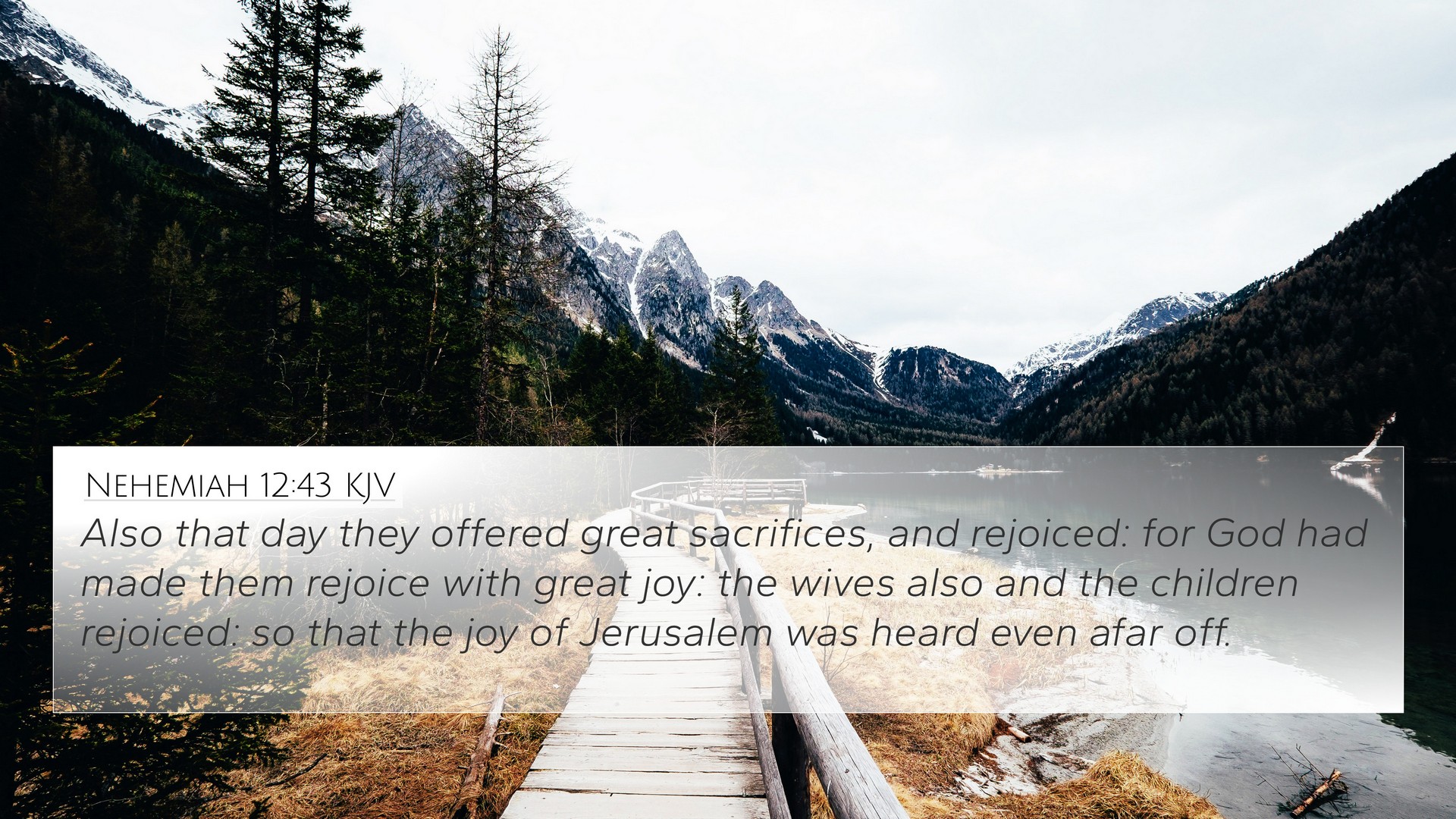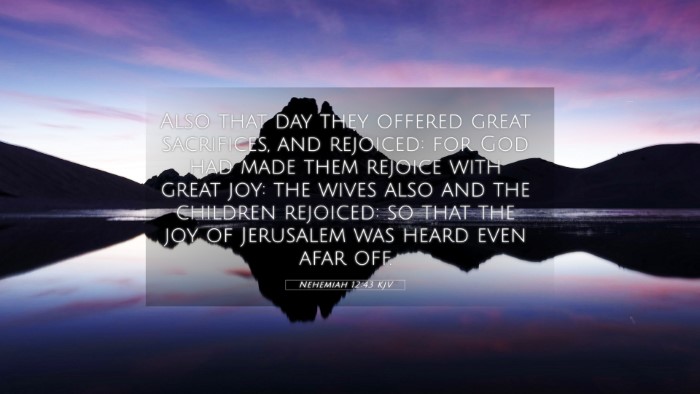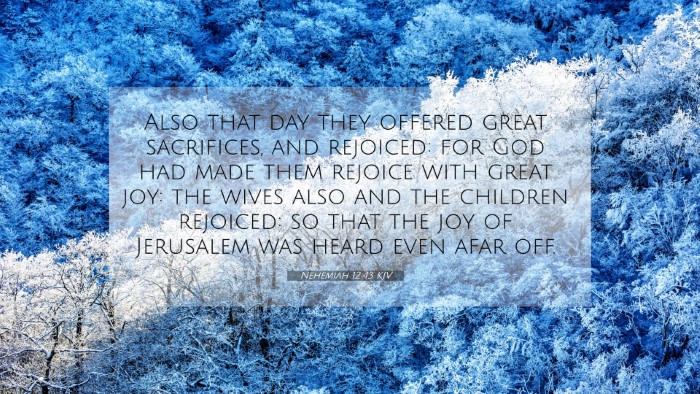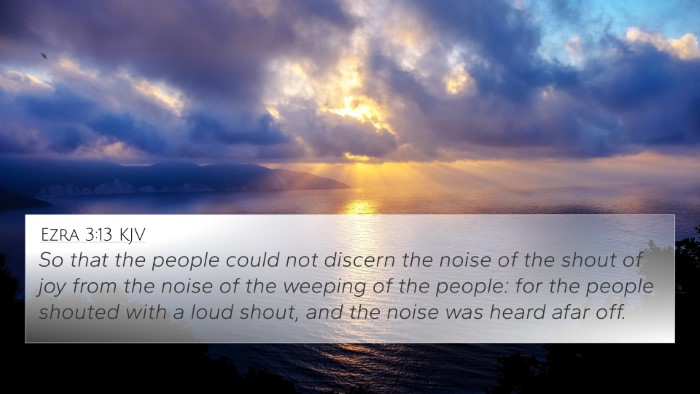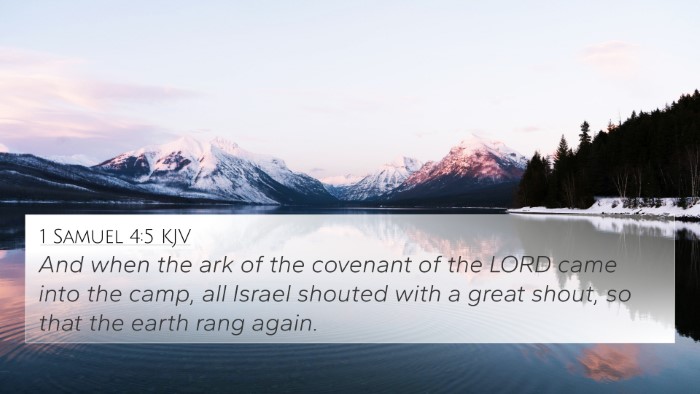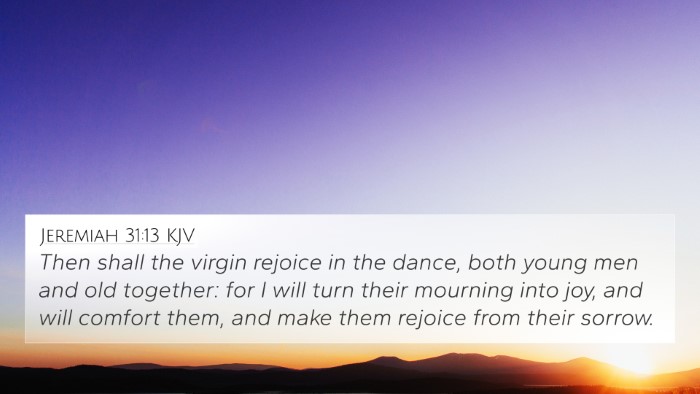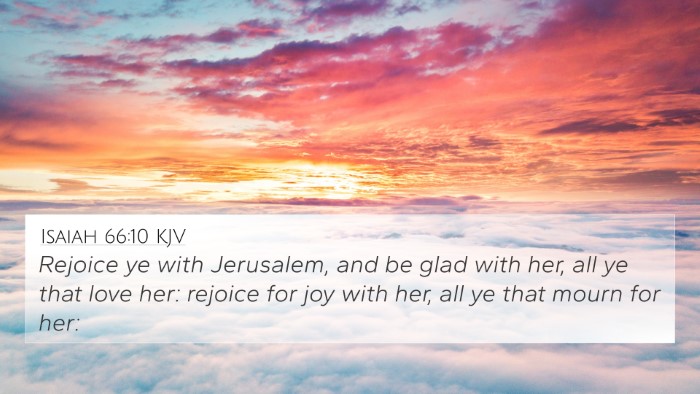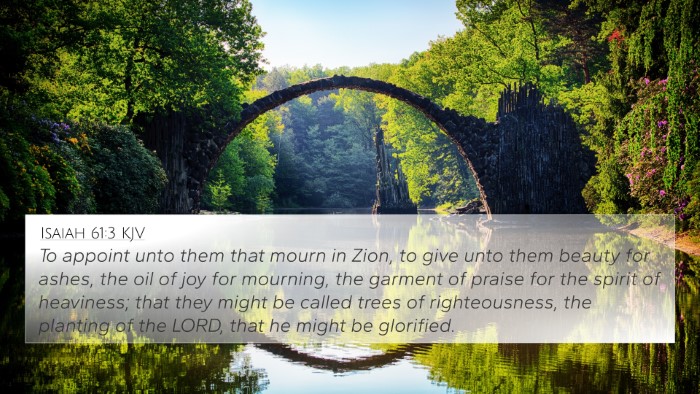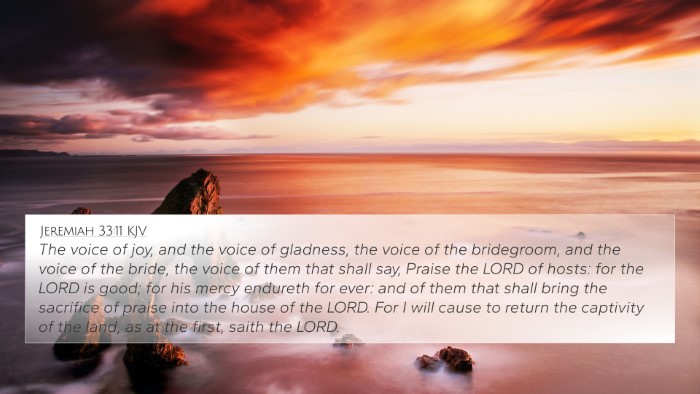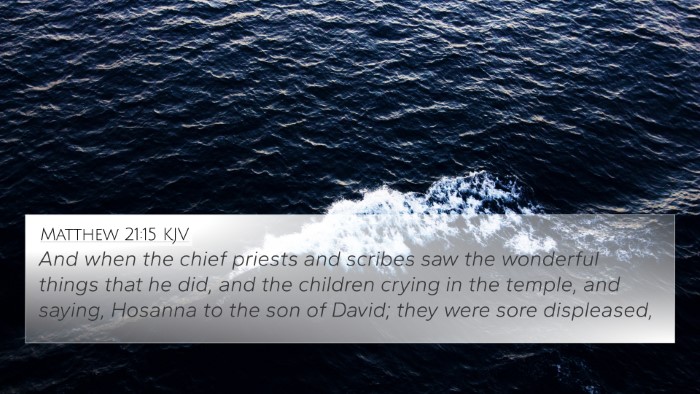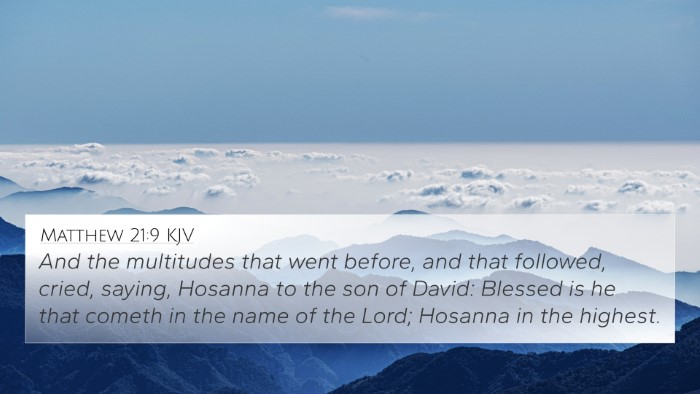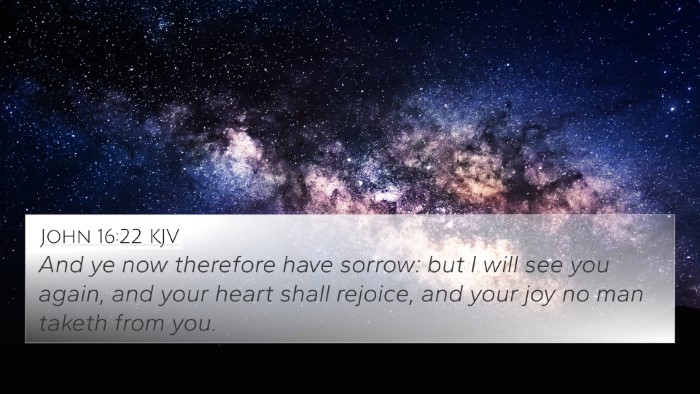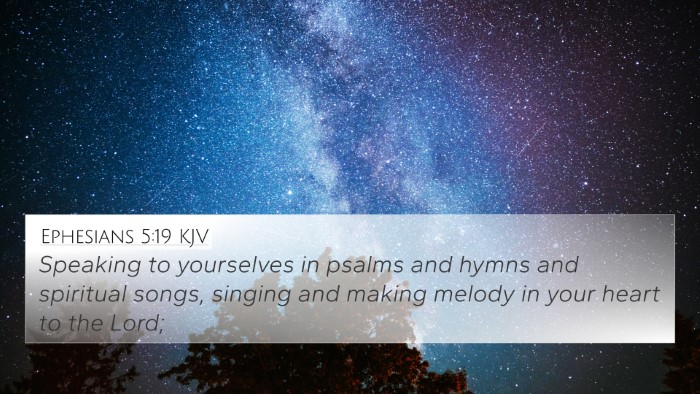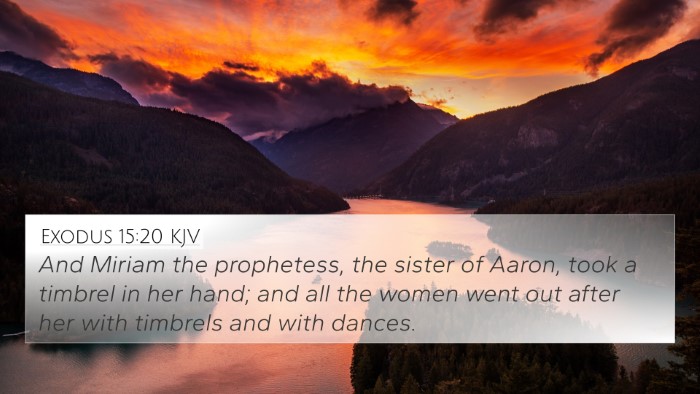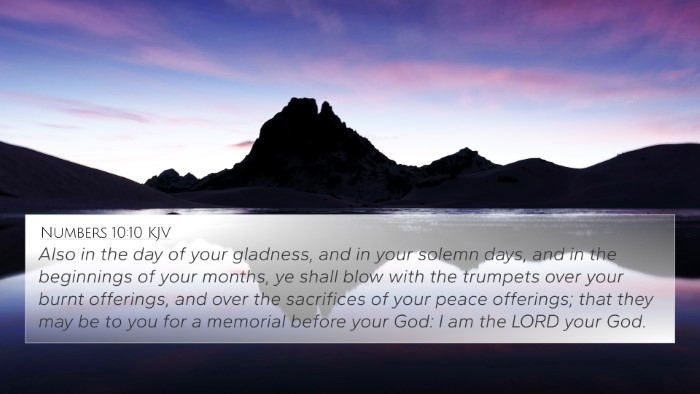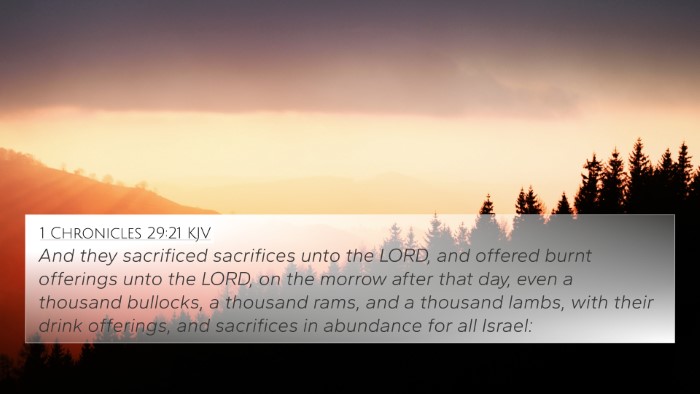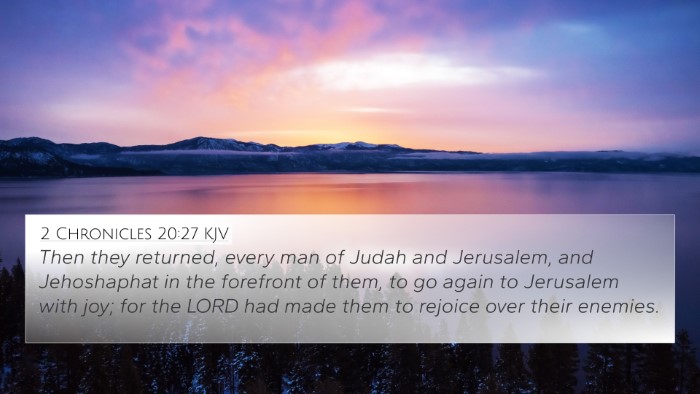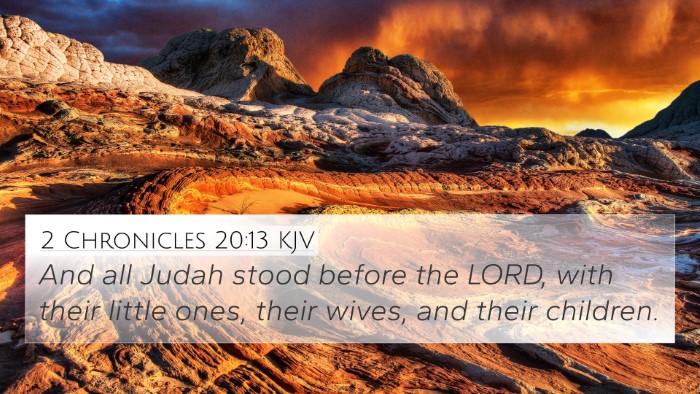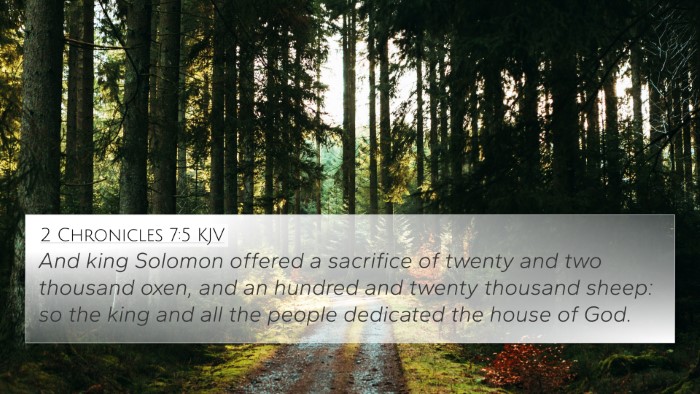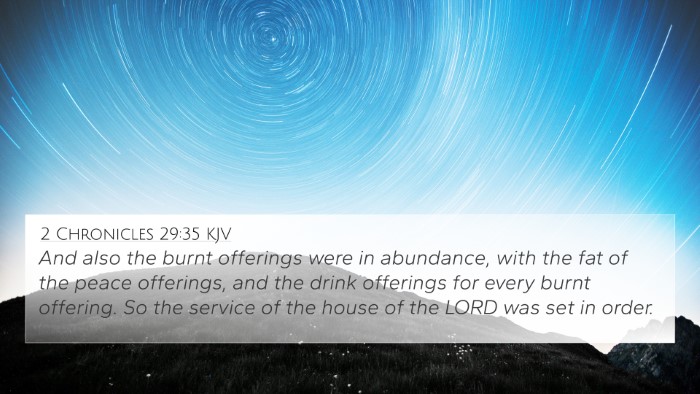Nehemiah 12:43 - Biblical Insights and Meaning
Nehemiah 12:43 states, "And also that day they offered great sacrifices and rejoiced: for God had made them rejoice with great joy: the wives also and the children rejoiced: so that the joy of Jerusalem was heard even afar off."
This verse encapsulates a moment of profound communal celebration, highlighting the restoration and dedication of the wall of Jerusalem. The joy expressed here is a significant theme within Scripture and connects to a broader narrative of redemption and divine blessing.
Contextual Analysis
The books of Ezra and Nehemiah share themes of restoration and renewal after the Babylonian exile. The people of Israel, having returned to Jerusalem, are re-establishing their community and worship practices. Nehemiah 12 describes the joyful celebration of this restored community.
Thematic Elements of Joy in Scripture
- The joy of the Lord is often linked to obedience and worship.
- Joy in the Bible frequently results from divine intervention or blessings.
- This verse represents a corporate joy that echoes throughout the community, emphasizing unity in worship.
Public Domain Commentaries Insights
Matthew Henry's Commentary:
Henry notes that the joy of Jerusalem marked a significant turning point for the Israelites. It signifies both a spiritual renewal and a return to communal worship following a long period of hardship. This joy is not merely emotional but reflects a deep gratitude to God for His faithfulness.
Albert Barnes' Notes:
Barnes emphasizes that the great sacrifices indicated not just physical offerings but a heart posture of worship and thankfulness. He illustrates that such celebrations were monumental in Israelite culture, often involving the entire community, including women and children. The mention of joy reaching afar illustrates the impact of their worship beyond Jerusalem, serving as a witness to other nations.
Adam Clarke's Commentary:
Clarke points out that the term "great joy" denotes a collective experience that transcends individual happiness, creating a powerful unity among the people. He connects this collective joy to the greater theme of restoration and identity that permeates the narratives of Israel, especially after exile.
Bible Verse Cross-References
This verse relates to several other Biblical texts, providing a rich inter-Biblical dialogue about joy, sacrifice, and restoration:
- Psalm 126:2 - "Then our mouth was filled with laughter, and our tongue with singing..." (Celebration of God's restoration)
- Ezra 3:11-13 - "And they sang together by course in praising and giving thanks unto the Lord..." (Rebuilding and joy in worship)
- Lamentations 5:15 - "The joy of our heart is ceased..." (Contrast between joy and mourning)
- Isaiah 12:3 - "Therefore with joy shall ye draw water out of the wells of salvation." (Joy from divine blessing)
- Luke 15:10 - "Likewise, I say unto you, there is joy in the presence of the angels of God over one sinner that repenteth." (Heaven's joy over redemption)
- John 15:11 - "These things have I spoken unto you, that my joy might remain in you..." (Joy from abiding in Jesus)
- Philippians 4:4 - "Rejoice in the Lord always: and again I say, Rejoice." (Encouragement for ongoing joy)
Connecting Themes in the New Testament
The joy expressed in Nehemiah 12:43 connects with New Testament teachings. The emphasis on communal worship and thanksgiving resonates in passages like Acts 2:46-47. The joy of the early church as they gathered is a reflection of the joy found in Nehemiah's celebration.
Application and Reflection
Believers today can draw insights from Nehemiah 12:43 about the significance of community in worship and the importance of expressing joy for God’s blessings. This verse invites reflection on how we celebrate God’s goodness together, not just as individuals, but as a body of Christ.
Tools for Bible Cross-Referencing
For those looking to delve deeper, employing tools such as a Bible concordance or Bible cross-reference guide can facilitate a more comprehensive exploration of themes and connections between verses. Understanding the cross-reference Bible study methods allows for a richer interpretive experience.
Conclusion
Nehemiah 12:43 serves as a powerful reminder of the joy found in communal worship and divine restoration. By engaging with the surrounding text and cross-references, one can enhance their understanding of the deep connections within the Bible relating to themes of joy, sacrifice, and God’s faithfulness.
As believers study these connections, they become better equipped for Bible cross-references for sermon preparation and personal edification in their faith journeys.
